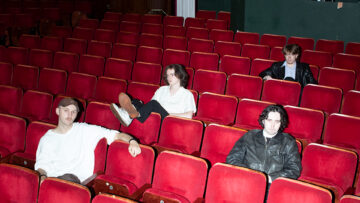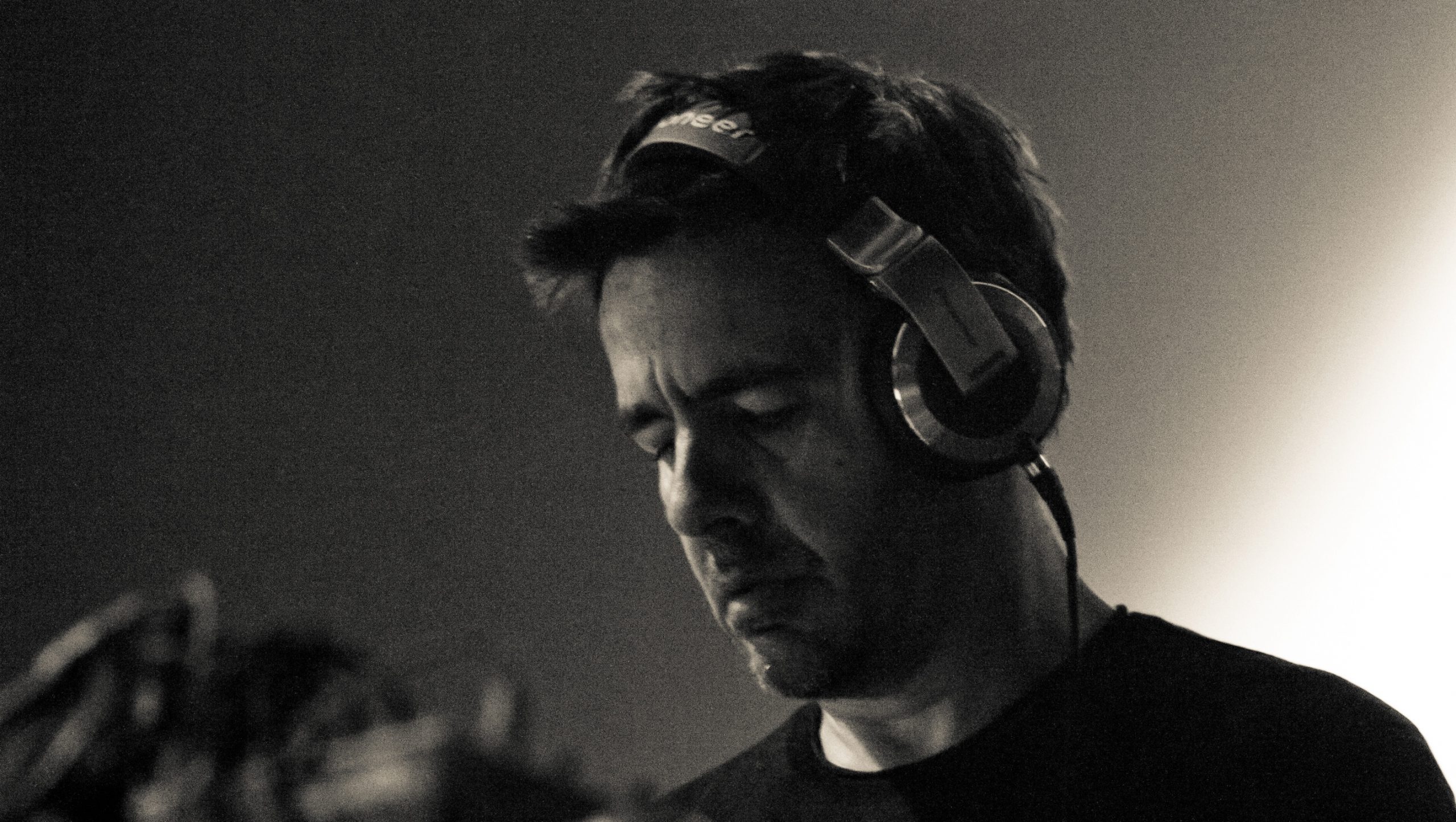
With a new film documenting his life out today in UK and Irish cinemas, and available for download, we speak to iconic French DJ and producer Laurent Garnier.
“As long as we understand each other that we’re not making a film about me, myself and I,” Laurent Garnier says he told Gabin Rivoire, director of the documentary Laurent Garnier: Off the Record. “We’re making a film about the scene – you use me to tell the story of a bigger picture. As long as you understand that, and you’re okay with that, I trust you, so it’s your film.”
Garnier’s instinct for selecting his director, like choosing the next record in one of his sets, has proved spot on. Off the Record, which is screening in UK and Irish cinemas from today, is a thrilling celebration of the legendary French DJ’s life – “the DJ’s DJ,” as fellow DJ Jeff Mills describes him in the film.
And, of course, just as Laurent wanted it to, the film tells a wider story – not just of techno and the club scenes in France, the UK and beyond, but of the addictive pursuit of euphoria they entail, and the binding strength music has in uniting people; those moments where a room of individuals merge into one, and the enormous political force this holds.
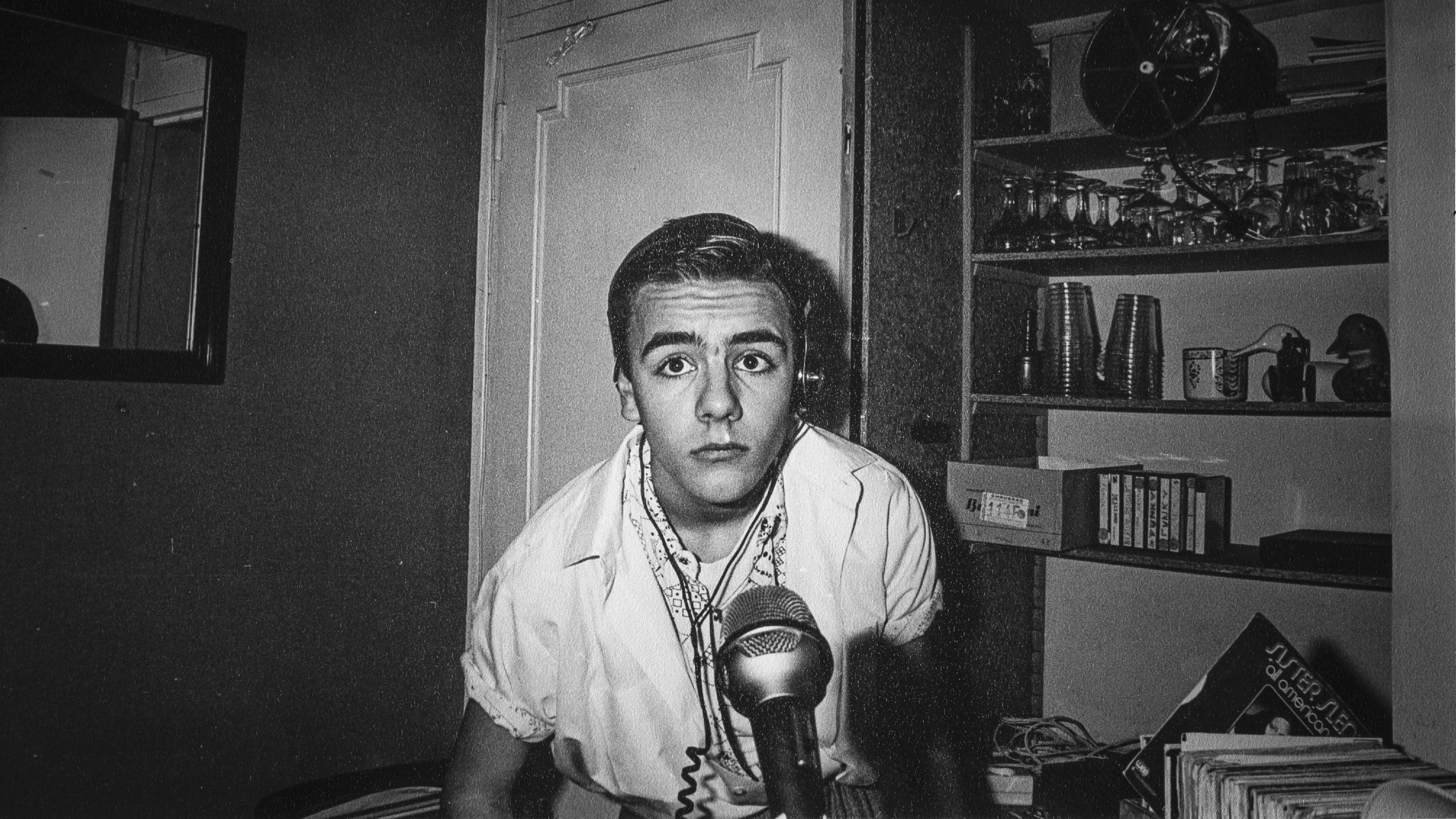
That said, Laurent’s life is especially unique, sparked by his self-described “eclectic” music taste from an early age, at a time when “people belonged to clans; either you were a teddy boy and you were into rockabilly, or you were a disco kid, or you were a punk.
“I was a bit of everything,” he says, in his clipped French accent, “which really destabilised a lot of my friends because they couldn’t understand I could like the Sex Pistols as much as Crazy Cavan, or as much as Chic.”
As a youngster, Laurent would spend hours in his bedroom, immersing himself in all manner of music on the radio, “dreaming about making people dance” – a longing represented for him by his disco ball.
“I think the symbolism of the disco ball was everything I could dream for. For me, it was the centre, like a church in the middle of the village – for me, it was Mecca. It meant clubs in New York, which I didn’t know, but was dreaming about. It meant England. It meant everything for me.”
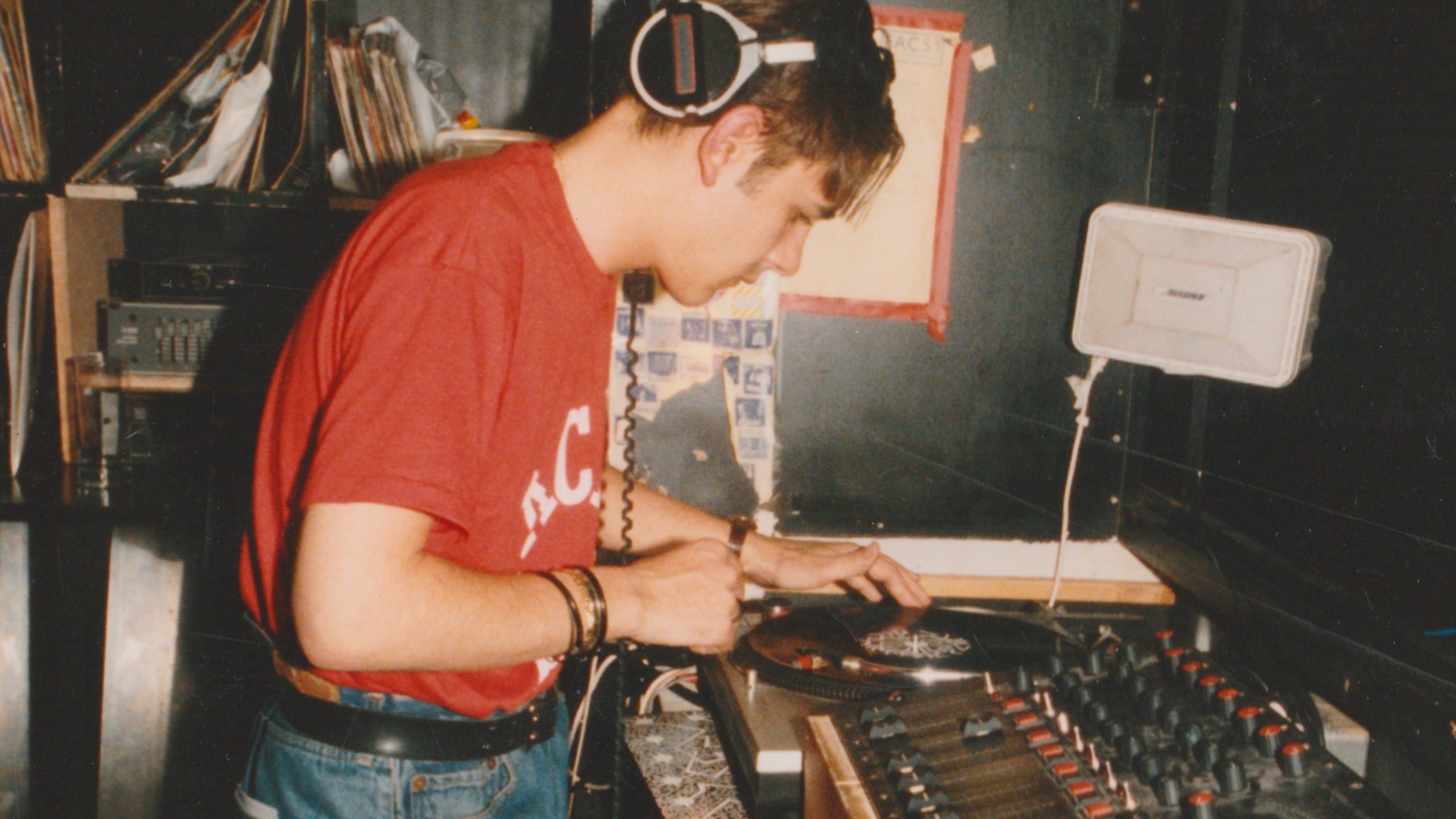
Laurent mixing at The Hacienda in 1988.
With such sparkling dreams, an 18-year-old Laurent would move to London in 1984 and get a job as a footman for the French ambassador. This would be his base while he discovered the UK’s clubs and rave scenes and fell in love with techno and house music.
Farley ‘Jackmaster’ Funk’s ‘Love Can’t Turn Around’ was a track he fell especially in love; a track which represents a period where he became enamoured with the sounds emerging overseas from the black gay clubs of Detroit and Chicago.
Manchester, too, would shape Laurent – specifically the iconic Hacienda, where on some nights, someone in the documentary recalls, it seemed to rain inside from the sweat of everyone dancing. Here, following the dawn of the Madchester years and New Wave with the likes of New Order, Laurent would become resident DJ under the name DJ Pedro.
Yet as global a world as this explosion of music offered a young Laurent, something called him back to his native France: military service. There’s a remarkable story Laurent relates in the documentary, of how he essentially didn’t fully sleep for a year.

Laurent back in the French Embassy in London, where he worked as a young man.
One of the first questions Laurent asked his superiors during his conscription was whether he could leave the site at night. Of course, they replied, so long as he reported for duty in the mornings; the whole night was opened up for Laurent to play multiple venues across Paris – including the Rex Club, with which he’s had a strong affiliation ever since – before returning to camp in the mornings.
“I was sleeping like three to four hours a day,” he tells me. “I was basically sleeping an hour coming back from clubs, before we had to say, ‘Yes, we’re here’. We’d serve lunch, then I had around two hours break in the afternoon when I was sleeping, then would wake up and serve; then go straight to Paris, DJ and back. I was doing that five nights a week. I wasn’t sleeping very much.”
When I ask him how he coped for a full year, he shrugs it off with a simple remark: “I was young. When you’re young, you can do stupid things.
“I wasn’t drinking too much,” he elaborates, “because I knew I was going to kill myself if I did. But I wanted to become a DJ so much that I couldn’t give a shit about the tiredness… not sleeping was not a problem.”

Such a drive from Laurent is of course a key component in establishing him has a pivotal figure in electronic music since its emergence in the late ‘80s. Off the Record reinforces just how key he was, from his Wake Up parties at Rex Club to his co-founding of the F Communications label along with Eric Morand in ’94. Fcom would go on to launch artists such as St Germain and Mr. Oizo, becoming a hugely influential French label – and a precursor for the later global success of Daft Punk.
If the reams of testimonies from the likes of Carl Cox, Jeff Mills, Blessed Madonna and Richie Hawtin (among many others), all speaking highly of his influence throughout the documentary, don’t do this effectively, not much will. Not that Laurent is particularly willing to embrace the p-word.
“I don’t see myself like a pioneer. For me, pioneers are people like Derrick May, DJ Pierre Lewis – people who really invented a style or something. Their records are like markers. You can’t tell the story of house music without having ‘French Kiss’ [by Lil Louis] or without having ‘Acid Tracks’ [by Phuture]; you can’t tell the story of techno music without ‘Inner City’ by Kevin Saunderson or ‘Rhythm Is Rhythm’ by Derrick May.
“Without all these guys, I would be nothing. So I really don’t consider myself a pioneer. I consider myself as someone who understood it and passed it on; who helped the scene to become more global. I got the shit they were doing, and I loved it. And then I helped them to give it to people. That’s who I am.”
Equally, Off the Record does a superb job of deconstructing the moments that constitute a special club experience. Its proficient use of slow-motion – in scenes from Laurent playing sets at Barcelona’s Sonar Festival to the highly acclaimed techno hub of Bassiani in Georgia – captures that underlying spirit that dwells in all of us during these events.
For Laurent, the climax of such a set is achieved when you “pinpoint the moment when to play the right record at the right moment, when everything switches to a completely different dimension… [which is] something that people will be able to go home and remember for the rest of their lives because you found the moment to make everything become super magical.
“I’ve been to a lot of clubs where the DJ played that record at that moment, and then I actually saw the whole place explode – because the DJ understood the moment. And this is the essence of what we do.
“The point is to be in a place, embrace the place, understand the place, taking in consideration of the time, the lights, the mood, the sound system, and then with all these things, tell a story… a story that resembles who you are, that has a personality that is a bit different… a story that is so unique that at one point we forget what’s outside. All that matters is what’s happening there in that club.”

It’s this quality that has long given music an enormous power; a social glue, both binding people together (at the Hacienda, during the individualistic era of Thatcher’s Britain, for instance); and also providing an escapist means of uplift for marginalised groups such as the black community in Detroit.
All this and more is explored in Off the Record, although it would be something of a spoiler to relay exactly how. Regardless, it’s able to tell this story through Laurent’s lens because of his life’s dedicated service to music – flanked by the same team for over 25 years (“this is my family, my stability; they don’t see me as an important artist, they see me as Laurent”).
If anyone’s life was going to be the prism through which to relay the significance of electronic music since the ‘80s, it would be his. It’s little surprise – although not without a hint of irony given the French authorities’ historic attempts to clamp down on raves – that he was awarded the Légion d’honneur (French Legion of Honour) in 2017 for his service to music.
Laurent tells me, too, that he listens to “a good 200 records a day” – an indication of the same drive he had as a young man, staring into the disco ball in his room. It’s an enduring engagement that keeps him at the top of his game – and offers an infectious optimism about the state of music, despite it being a heavily saturated world.
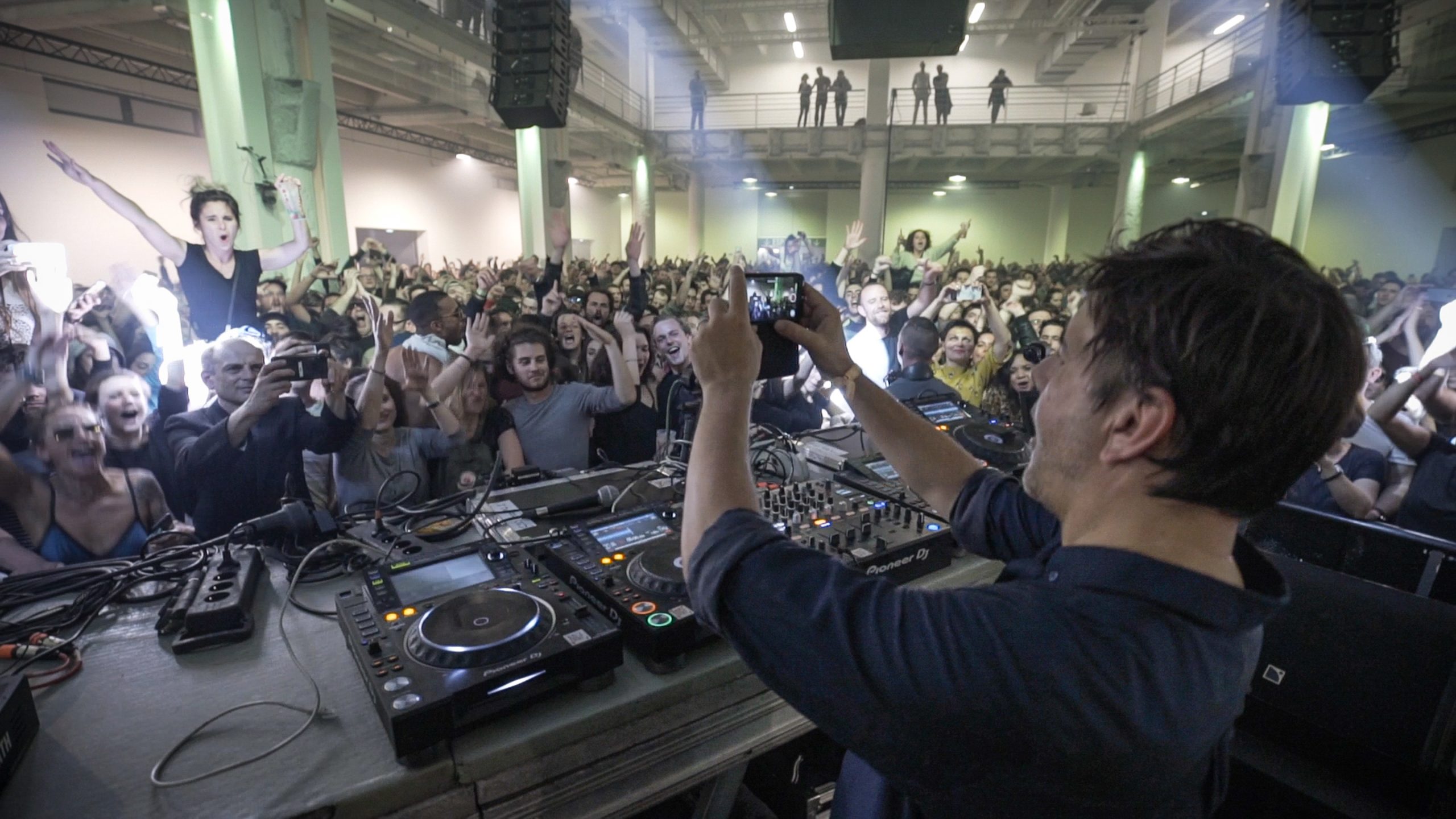
“It’s our job to search. And we have to search. Sometimes people say, ‘Oh, I don’t like the music that’s coming out now.’ And I’m like, ‘Really? Have you been record shopping, really?’ Yes, you have to spend more time ditching the crap, but there’s still a lot of really exciting music. Every weekend, I have lots of new records I’m excited to play.”
Off the Record is bookended by scenes of Laurent moving his extensive collection of records into one single room – a project he’s managed to complete, even after miscalculating by 15 metres (“and believe me, 15 metres is a fuck of a lot of records”).
“They’re all here now. It’s nice to have everything together,” he says, in his typical manner of switching his expression from a serious one to a childish grin. “It’s like a nice coffin.”
Indeed, Off the Record isn’t just about Laurent Garnier’s life. It’s a whole lot more. But what a life he’s led.
Off the Record is in cinemas across the UK and Ireland and available to buy via download through Doc’n Roll’s on-demand platform Doc’n Roll TV, as well as iTunes and Amazon Video.




